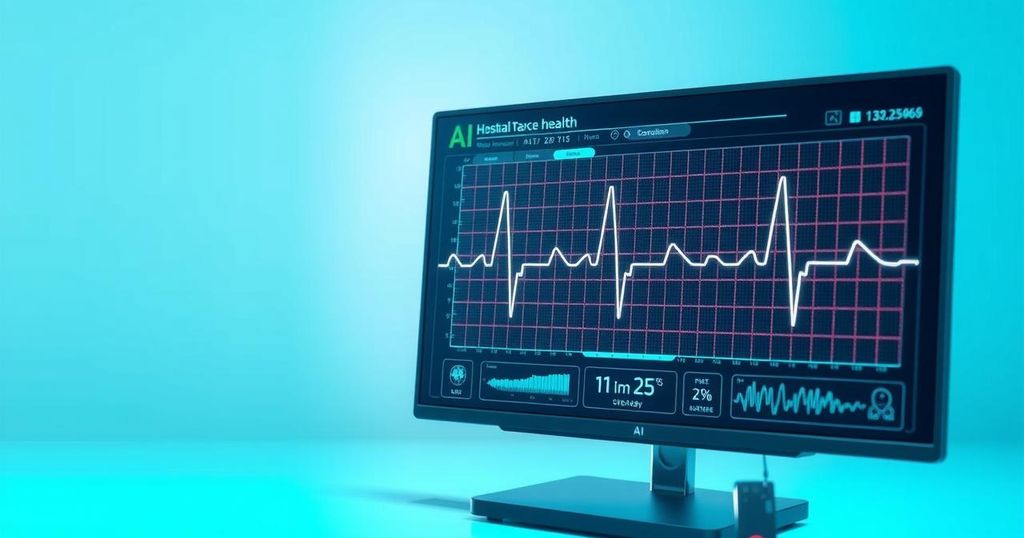Hospitals Trial AI to Spot Type 2 Diabetes Risk
Two NHS hospitals in London are trialing an AI system called Aire-DM to predict type 2 diabetes risk by analyzing ECG heart traces. Early results show a 70% accuracy rate, with trials for wider implementation planned for 2025. The British Heart Foundation supports this research, highlighting its potential to save lives through early detection of diabetes.
Two London NHS hospital trusts are testing a new AI tool designed to identify the risk of type 2 diabetes up to ten years before it surfaces. The hospitals involved are Imperial College and Chelsea and Westminster NHS foundation trusts, both of which have embarked on training an AI system known as Aire-DM. This innovative technology scrutinizes ECG heart traces for subtle indicators of diabetes risk that might elude even the best doctors.
The current phase includes gathering data from up to 1,000 patients at both facilities, with trials expected to start in 2025. Early data is promising, showing that Aire-DM can predict diabetes risk around 70% of the time. Dr. Fu Siong Ng, the lead researcher, explained that supplementing the ECG data with patient background such as age, sex, blood pressure, and weight boosts the AI’s effectiveness.
An electrocardiogram, or ECG, tracks the heart’s electrical activity, including how well it beats and its rhythm. Dr. Fu emphasizes the complexity of the signals the system detects. “It’s not as simple as picking out one part of the ECG,” he noted, while highlighting the nuanced patterns the AI is designed to recognize.
While doctors are not yet offering this AI service routinely, there’s hope for a broader implementation within the NHS. However, that may still be five years away, Dr. Fu suggests. The British Heart Foundation, which is financing this transformative research, underscores the potential of early diabetes detection to save lives.
Uncontrolled type 2 diabetes can lead to severe complications, including heart attacks and strokes. Maintaining a balanced diet, exercising, and managing weight are essential countermeasures. Professor Bryan Williams from the British Heart Foundation described the AI’s capability as a “gamechanger” for predicting diabetes risk, emphasizing how this could shift approaches in clinical practice. “This exciting research uses powerful artificial intelligence to analyze ECGs,” he said, stressing the importance of using technology to find risks much earlier than typically possible.
In summary, the trial of the AI system Aire-DM at two NHS hospitals in London marks an intriguing step forward in predicting type 2 diabetes risk years before it manifests. The combination of ECG data and patient backgrounds shows promise, potentially saving lives through early intervention. While we’re not on the brink of routine implementation just yet, the excitement surrounding this research speaks to a new age in medical technology—one where AI could improve life-saving outcomes in healthcare.
Original Source: www.bbc.co.uk




